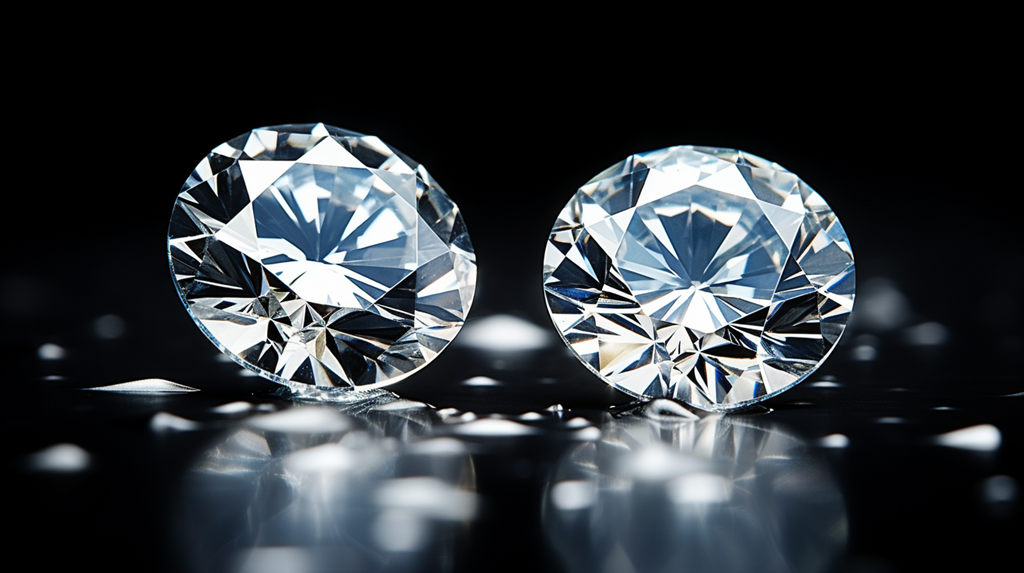Introduction to Diamond Certification
When it comes to buying diamonds, understanding their quality and value is crucial. This is where diamond certification comes in. Certifications from reputable organizations provide assurance that a diamond has been evaluated based on standardized criteria. Among the most recognized names in the industry are igi vs gia (International Gemological Institute) and GIA (Gemological Institute of America). But how do they stack up against each other? Let’s dive in!
Why Certification Matters
Certification matters because it gives you confidence in your purchase. Whether you’re buying an engagement ring or a piece of fine jewelry, a certification provides insight into the diamond’s quality, ensuring you know exactly what you’re getting for your money.
Overview of Diamond Grading Organizations
Various organizations around the world specialize in diamond grading. However, IGI and GIA are two of the most prominent. Each has its own grading criteria, history, and reputation, which can influence your decision when purchasing a diamond.
Understanding IGI (International Gemological Institute)
History and Reputation of IGI
Founded in 1975, IGI has grown to become one of the largest gemological laboratories in the world. With headquarters in Antwerp and branches in several countries, IGI has established a solid reputation for grading not just diamonds but also colored stones and jewelry.
IGI’s Grading Criteria
IGI grades diamonds based on the 4Cs: Cut, Color, Clarity, and Carat weight. However, they also offer additional grading factors, such as fluorescence, which can impact the diamond’s appearance and value.
Benefits of IGI Certification
One of the benefits of IGI certification is that it often comes at a lower cost compared to GIA. This can make IGI-certified diamonds a more budget-friendly option. Additionally, IGI offers a straightforward grading process, making it easier for consumers to understand their diamonds.
Exploring GIA (Gemological Institute of America)
History and Reputation of GIA
GIA was established in 1931 and is widely regarded as the leading authority on diamond grading. Their rigorous standards and comprehensive education programs have set the benchmark for quality in the diamond industry.
GIA’s Grading Criteria
Like IGI, GIA also employs the 4Cs for grading diamonds. However, GIA is known for its precise grading and more extensive research into diamonds, which enhances its reputation for accuracy and reliability.
Benefits of GIA Certification
GIA-certified lab created diamonds are often viewed as the gold standard in the industry. This certification provides exceptional transparency, making it a trusted choice for consumers. Additionally, GIA offers detailed reports that include diagrams and visual representations of the diamond’s characteristics.
Key Differences Between IGI and GIA
Grading Standards
While both organizations use the 4Cs, GIA is known for its more stringent grading standards. This means that a GIA-graded diamond may be perceived as higher quality than an IGI-graded diamond of the same grade.
Transparency and Trustworthiness
GIA has built a reputation for transparency and trustworthiness, which can lead to higher resale values for GIA-certified diamonds. IGI, while reputable, does not carry the same level of market recognition.
Market Recognition
GIA’s certifications are often more widely recognized and respected in the marketplace. This can be particularly important if you ever plan to resell your diamond, as GIA-certified stones may command higher prices.
Choosing the Right Certification for Your Diamond
Personal Preferences
Choosing between IGI and GIA largely depends on your personal preferences. If you value comprehensive details and a recognized standard, GIA may be the better choice. On the other hand, if budget is a significant factor, IGI could be more appealing.
Budget Considerations
While GIA certifications may come with a higher price tag, they can also add value to your purchase in the long run. IGI-certified diamonds may be more affordable upfront, but consider how the certification could impact resale value.
Conclusion: Making an Informed Decision
In the battle of IGI vs. GIA, both organizations offer valuable certification services for diamonds. While IGI may provide a more budget-friendly option, GIA stands as the benchmark for quality and trust in the industry. Ultimately, the choice between IGI and GIA comes down to your individual needs and preferences. Whether you opt for the affordability of IGI or the prestige of GIA, understanding what each certification offers will empower you to make an informed decision when purchasing your perfect diamond. Happy shopping!


